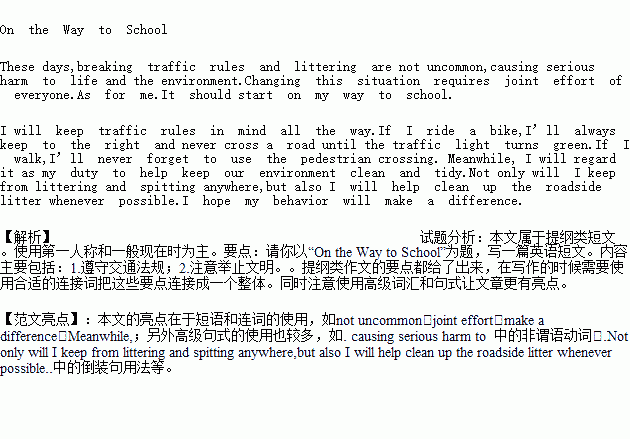题目内容
假设你校英语社团举办以“讲求文明,从我做起”为主题的征文活动,请你以“On the Way to School”为题,写一篇英语短文。
内容主要包括:1.遵守交通法规;
2.注意举止文明。
注意:1.词数 120 左右;
2.可以适当增加细节,以使行文连贯;
3.短文中不能出现与本人相关的信息;
4.短文的题目已为你拟好,不计入总词数
____________________________________________________________________________________________
____________________________________________________________________________________________
____________________________________________________________________________________________
____________________________________________________________________________________________
____________________________________________________________________________________________
____________________________________________________________________________________________
____________________________________________________________________________________________
_________________________________________________________________________


 ker its voice and identity.
ker its voice and identity.